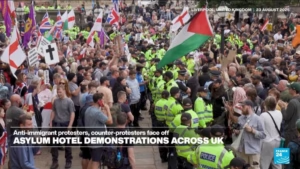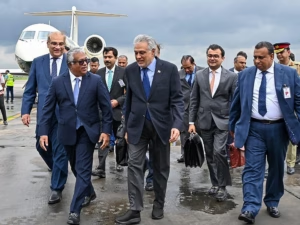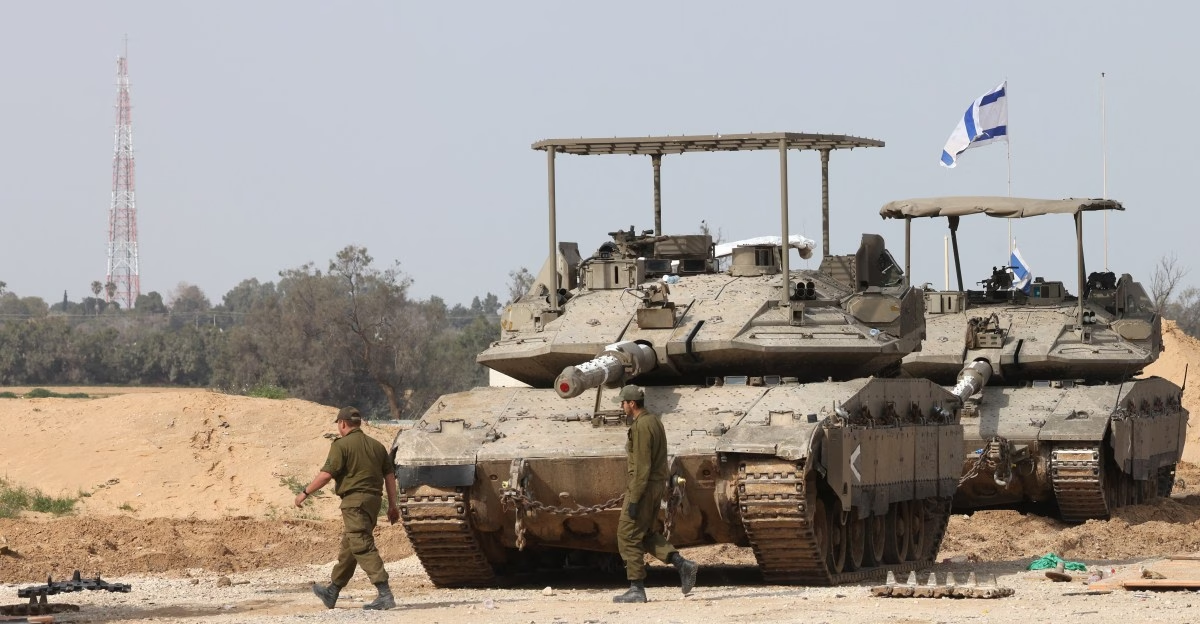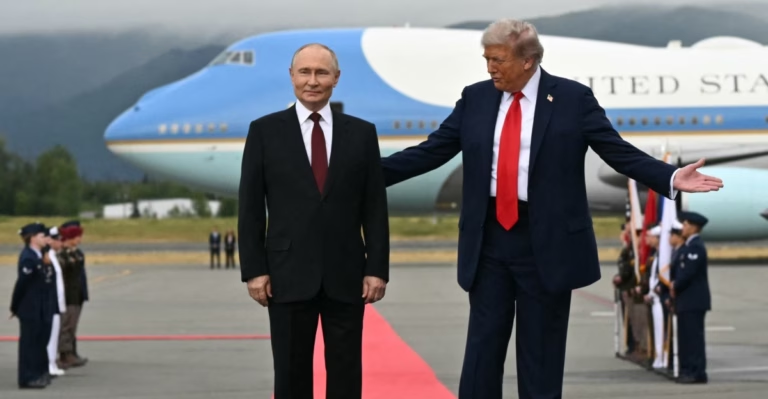Israel and Hamas have reached a fragile ceasefire, but the agreement has done little to ease tensions in the region. Despite the agreement taking effect in January, Israel has continued to conduct raids in the West Bank, displacing over 40,000 Palestinians – the highest level of displacement since the 1967 occupation. After the first phase of the ceasefire ended, with both sides unable to come to an agreement, Israel once again cut off electricity to Gaza and blocked humanitarian aid from entering the territory.
Over the past year, Israel has killed over 61,000 Palestinians, decimated Gaza’s healthcare infrastructure, and displaced nearly 90 percent of the population. Yet, Israel and its allies continue to defend the country’s actions by claiming that it has a right to defend itself.
This line of reasoning has been repeated for decades by world leaders such as George Bush, Barack Obama, and Donald Trump. Even now, American politicians continue to use this phrase to support Israel during its ongoing conflict with Hamas.
However, some legal experts argue that Israel does not have a right to defend itself in the occupied territories. Under international law, any recognized sovereign state has a right to defend itself against an armed attack from another country. But since Hamas’s attacks come from territories that Israel controls, some argue that the country cannot invoke a right to self-defense.
International law, as outlined in the Charter of the United Nations and international humanitarian law, supports this interpretation. While some forms of international humanitarian law have existed for centuries, today’s version is rooted in the 1949 Geneva Conventions and other binding treaties. The International Court of Justice and the International Criminal Court are responsible for adjudicating and enforcing these laws.
There remains debate as to whether Israel has a legitimate case for self-defense. One argument is that October 7’s attacks amounted to an “armed attack” recognized by Article 51 of the UN Charter, which would trigger a state’s right to self-defense. Prior to the 9/11 attacks, the prevailing interpretation of the UN Charter deemed only states could carry out armed attacks, not non-state actors like Hamas. The US challenged this view after 9/11 and launched the “war on terror,” targeting non-state actors.
Still, whether October 7’s attacks amounted to an “armed attack” is beside the point. The ICJ already determined in 2004 that the claim of self-defense did not apply within Israeli-controlled territories.
Israel argues that although it withdrew its military and settlements from Gaza in 2005, the enclave is not under occupation. Therefore, legal reasoning from the 2004 advisory opinion on the separation wall does not apply because Israel does not control the territory. However, the international community still considers Gaza, along with the West Bank and East Jerusalem, occupied Palestinian territories.
Israel can legally respond to attacks like October 7 through law enforcement efforts like police crackdowns on perpetrators of violence. However, an overwhelming show of military force would not be justified. There is no clear measure for a proportional response, but international humanitarian law provides some guidelines.
Israel could also use “necessary and proportionate force to repel the attack” as an occupying power. However, its actions as an occupying power also mean that it cannot wage war under the guise of stopping future attacks by Hamas or Palestinian armed groups.
While Palestinians do have a right to resist under international law, including armed resistance, they do not have the right to commit war crimes such as killing innocent civilians or taking hostages.
The definition of self-defense is important because Israel’s allies, particularly the United States, should have pushed the country to abide by international humanitarian law and limited their support to proportionate law enforcement efforts. Instead, providing a blank check to the Israeli government has enabled the country’s worst impulses and exacerbated the humanitarian catastrophe in Gaza.
Allowing Israel’s claim of self-defense to go unchecked essentially absolves the country of its role as an aggressor by ignoring its unlawful, brutal military occupation, which various human rights organizations have labeled an apartheid regime.
By acknowledging this reality, Israel and its allies must also take responsibility for their actions and work towards a peaceful resolution in the region.
Source: https://www.vox.com/world-politics/403719/israel-right-to-self-defense-gaza-palestine-international-law







